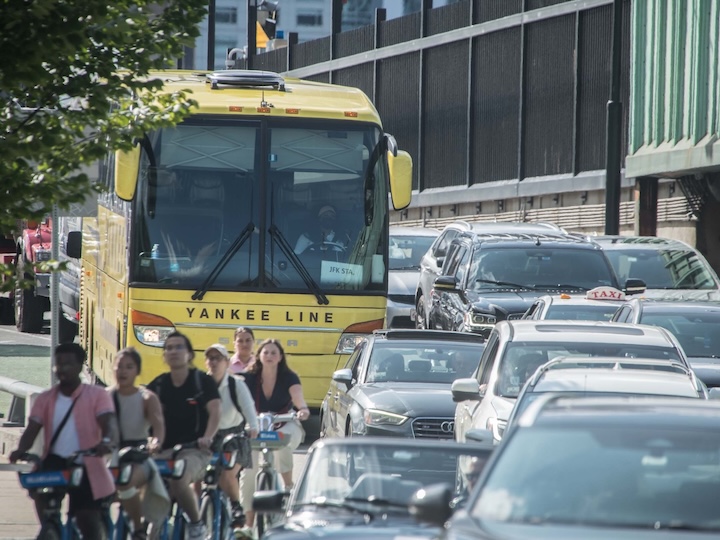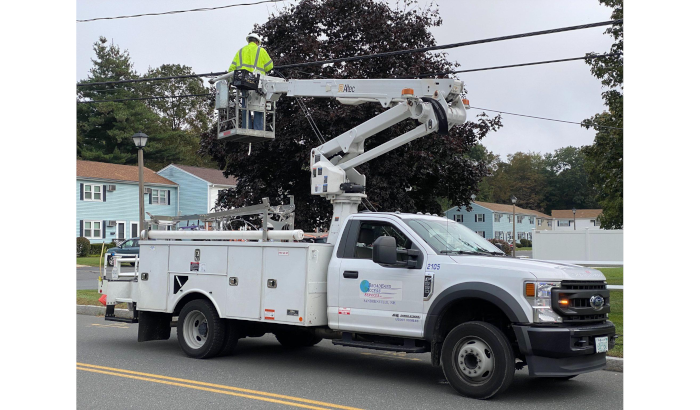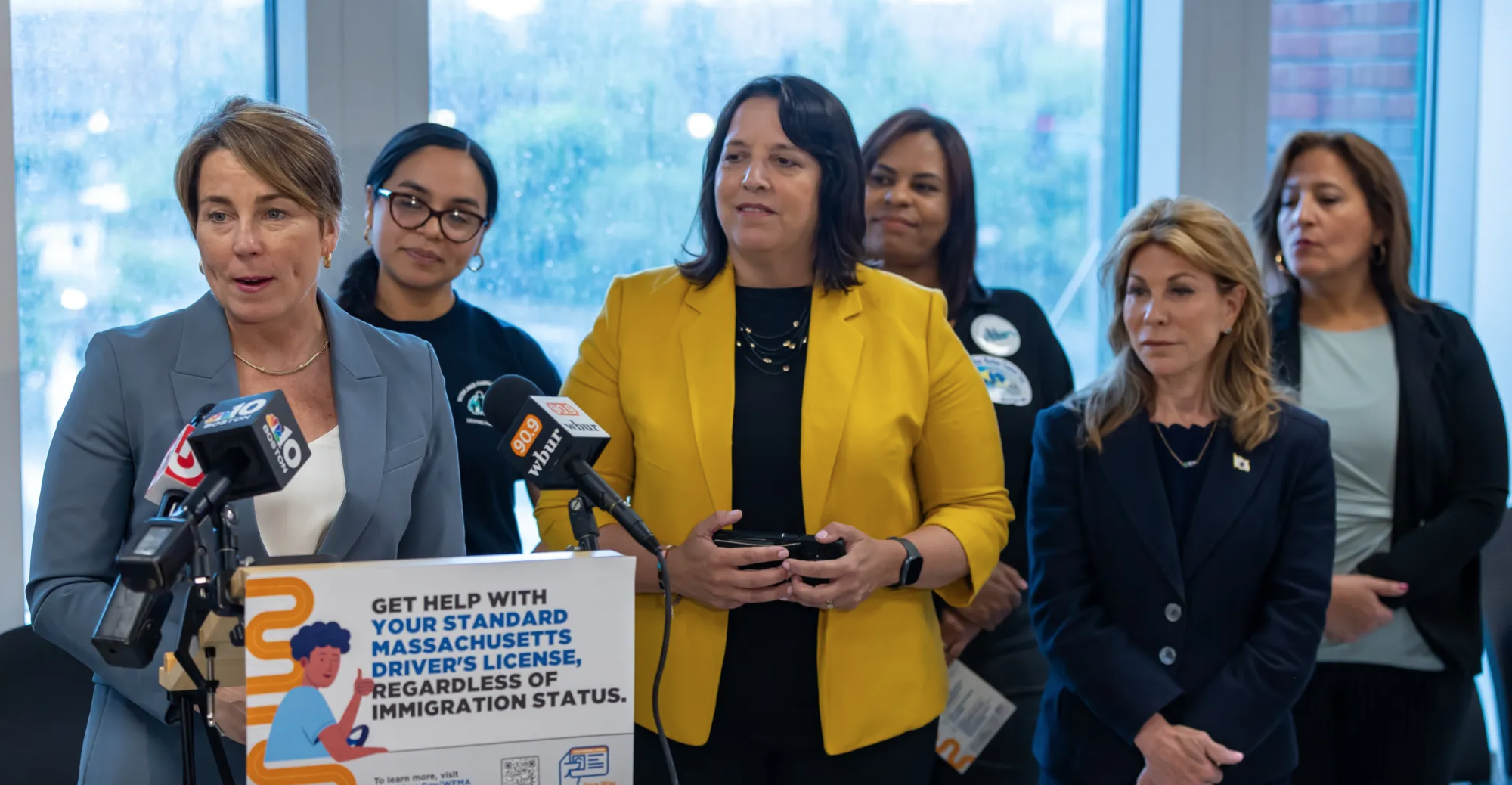Photos by Derek Kouyoumjian
Words by Chris Faraone
“This morning, my driver got lost. My express from South Station took almost two hours to get to Harvard. Now it’s like it’s happening all over again.”
I overheard Wayne reeling on a Red Line shuttle that we boarded at JFK UMass. We got to chatting during a two-mile trip that took more than an hour-and-a-half, and when it became clear that we were in this one together for a while, sort of like new buddies chained together in a vault during a bank heist, other folks around us started jumping on the pile.
“They’re always telling me the wrong shuttle to get on, goddamn nitwits.”
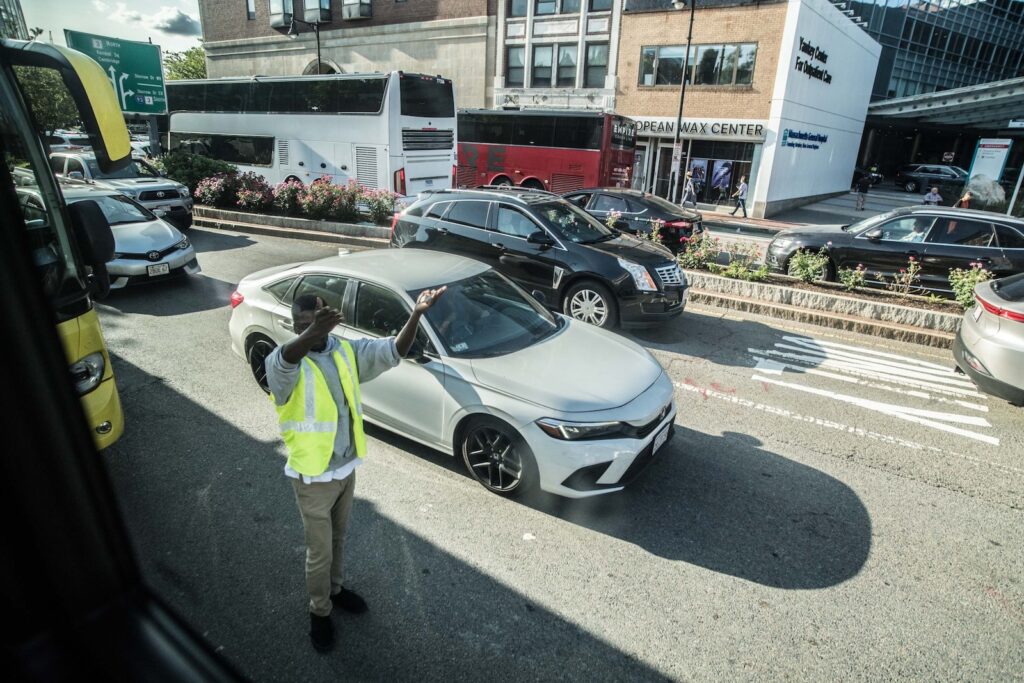
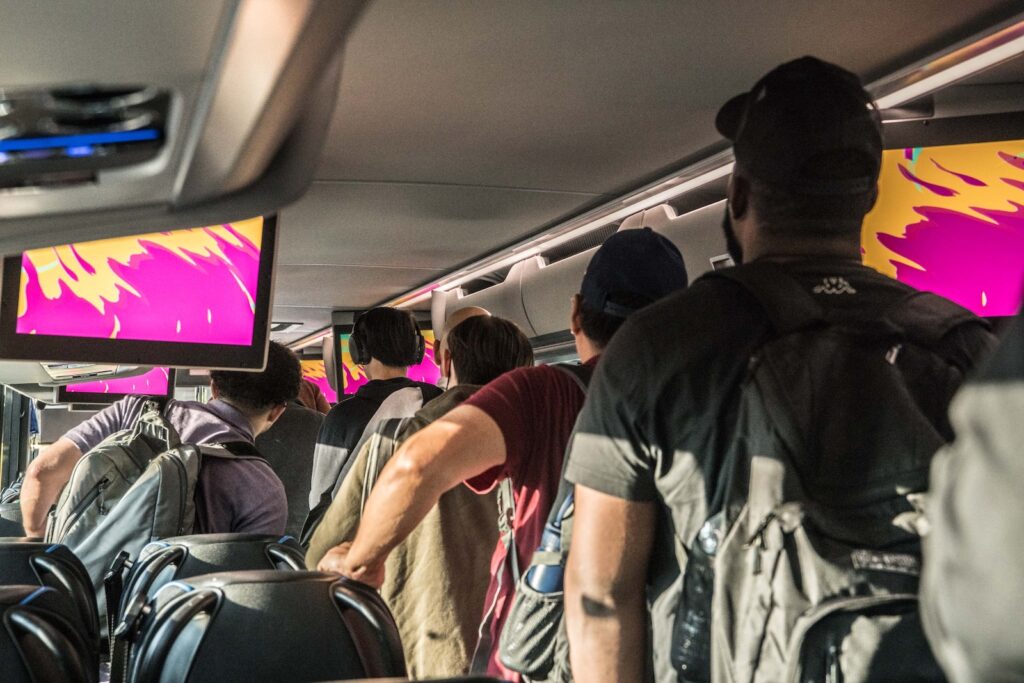
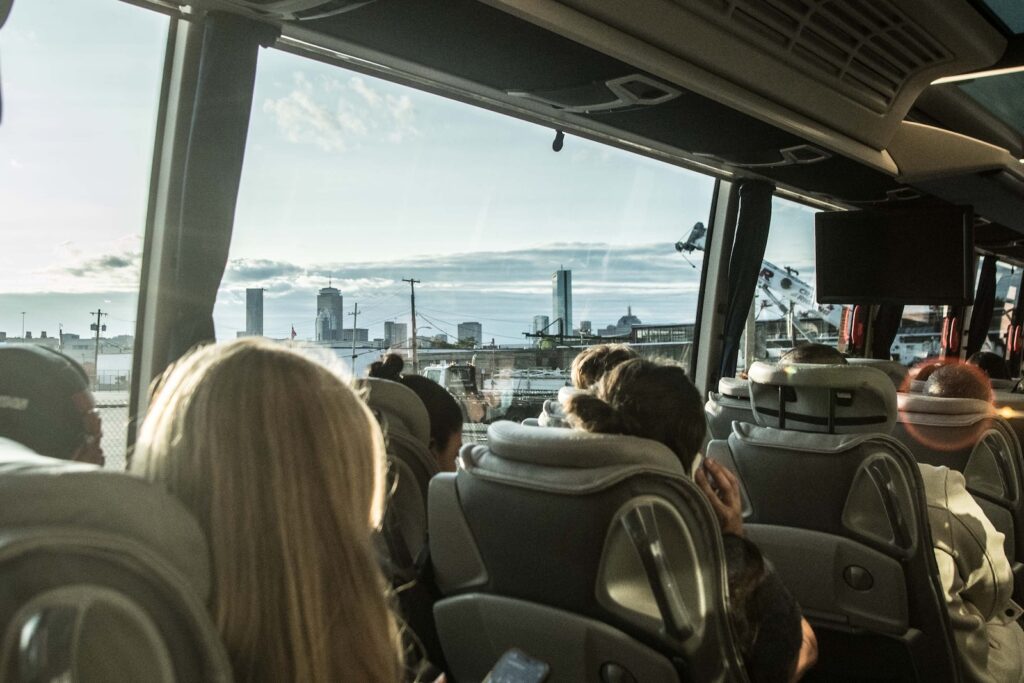

Eve had much uglier words than those to shout about the MBTA, but the PG version adequately paints the picture.
“What do you mean?” I started getting nervous. Gulp. “This is the express to South Station, right?”
Eve slapped the back of the luxury bus seat like a football fan whose team just missed a field goal, closed her eyes in disapproval, and shook her head in disgust.
“You see, they did it to you now too. No, they said South Station because that’s the last stop, but first we’re in this bumper-to-bumper on the way to Andrew and Broadway.”
I was sure the guy in the reflective vest said that it was express to downtown. Now it was my turn to curse.


The necessary evil of MBTA shuttle service
That’s just one of infinite vignettes that I have alone from my past several years on the T’s substitute buses. Add those to all the anecdotal stress-inducing nightmares of the countless others who have missed appointments, job interviews, parties, school pickups, dates, dinners, and out on innumerable hours they should, could, or would have been doing something more important or fun than impatiently boiling over with anger in traffic, and you might have a number that compares to the hundreds of millions of dollars the strapped MBTA will spend on its open shuttle contracts.
Shuttles are a strange beast, and as an editorial director of an organization that impugns public transit, it takes a bit of faith in management as well as objectivity to cover the sub-topic fairly. Reporters should be aggressively critical, but never hypocritical, so it would be absurd for any journalist who points out urgent repairs needed to then knock the agency for offering wheels while it makes critical fixes. Whenever questions come up about the cost of hiring shuttles, the MBTA pats itself on the back and says that it beats the alternative of leaving people stranded. I suppose that we agree on that.
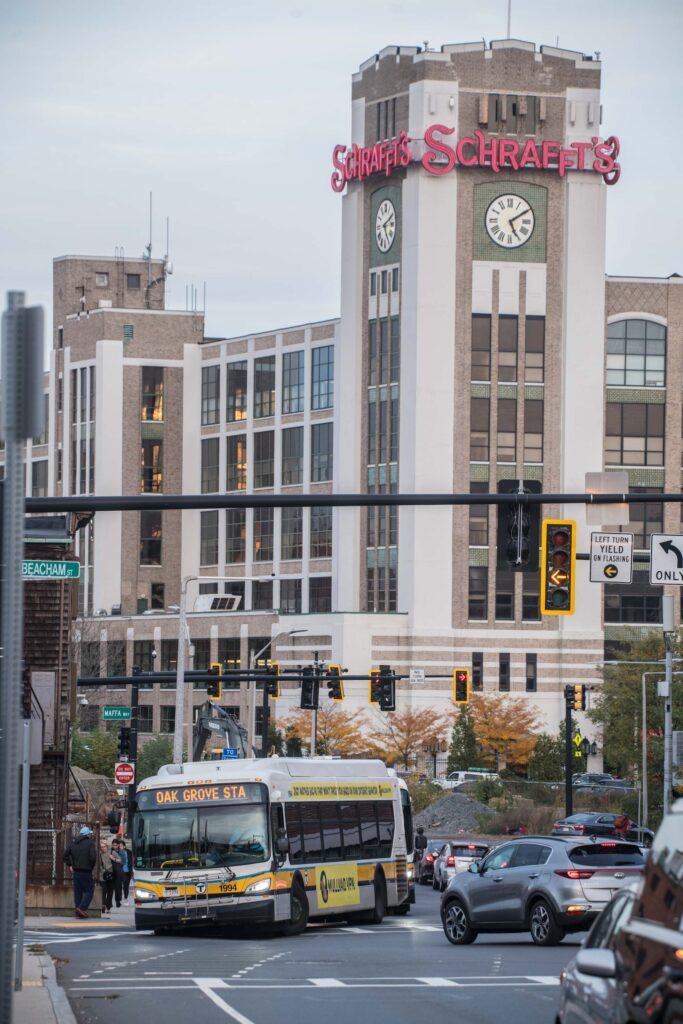

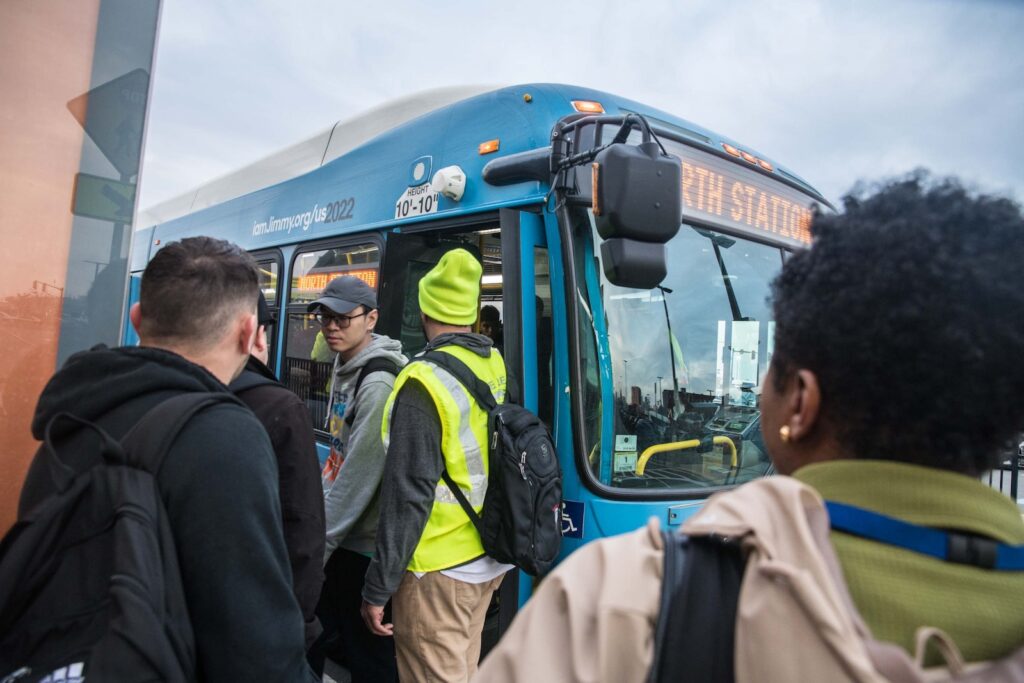
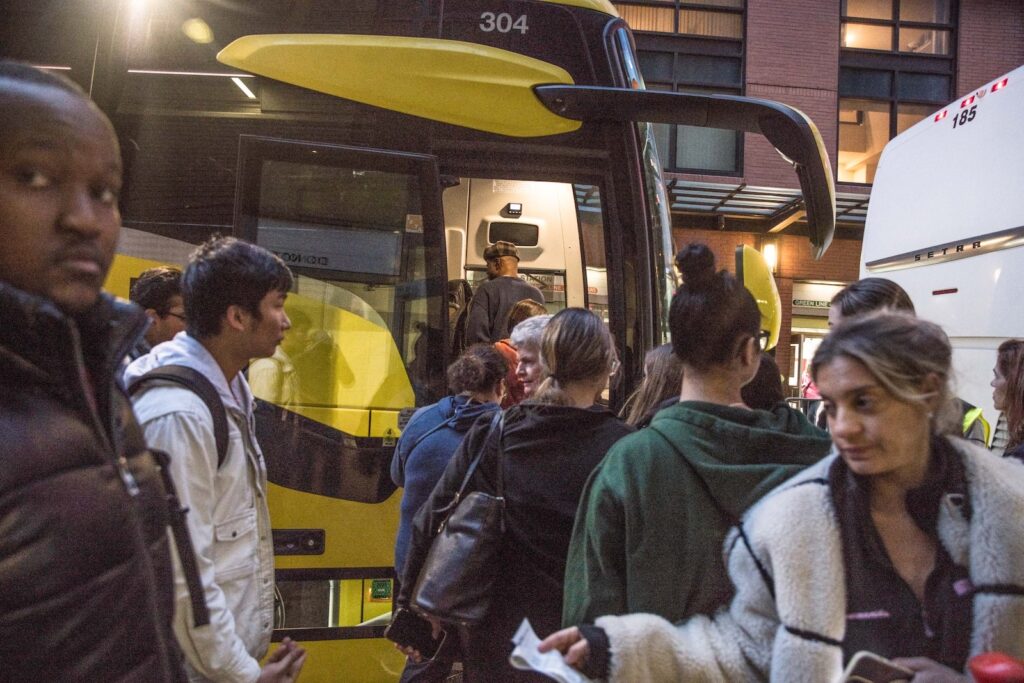
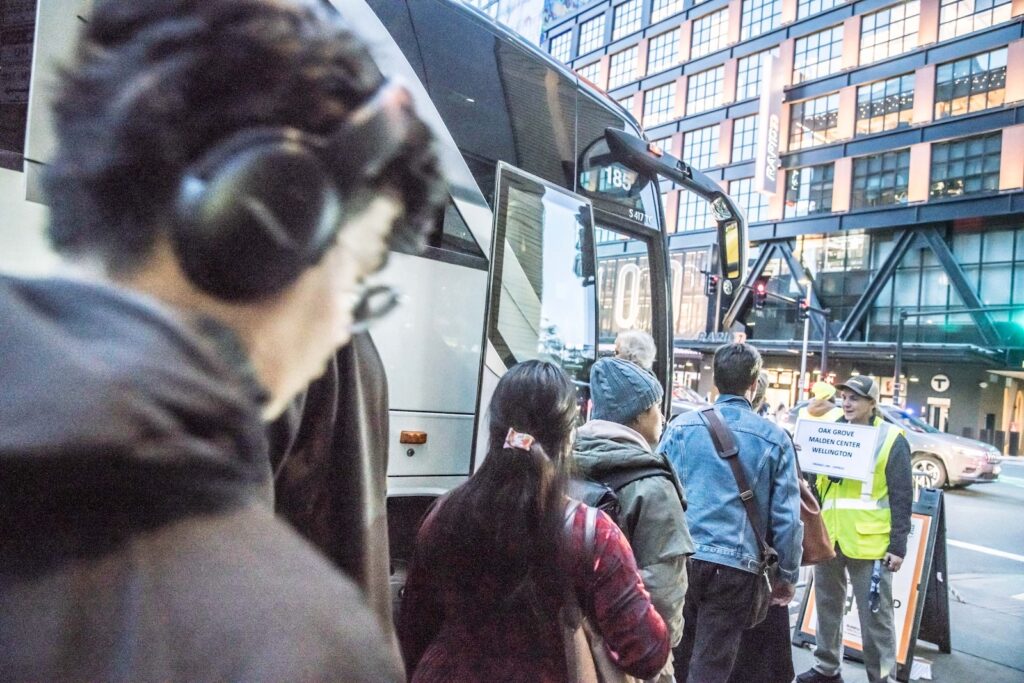

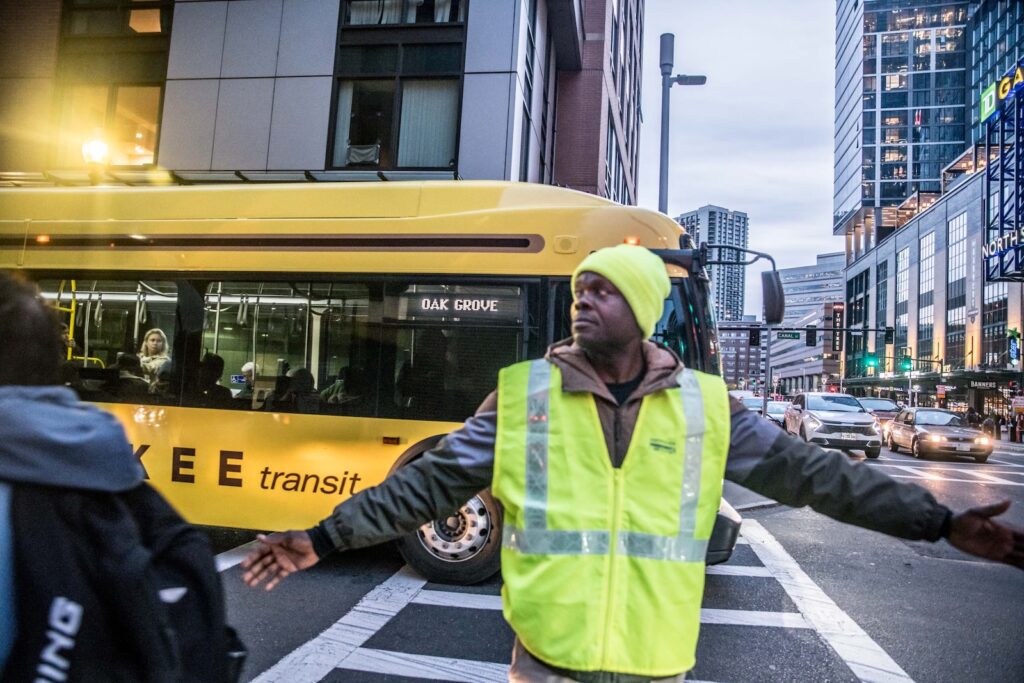
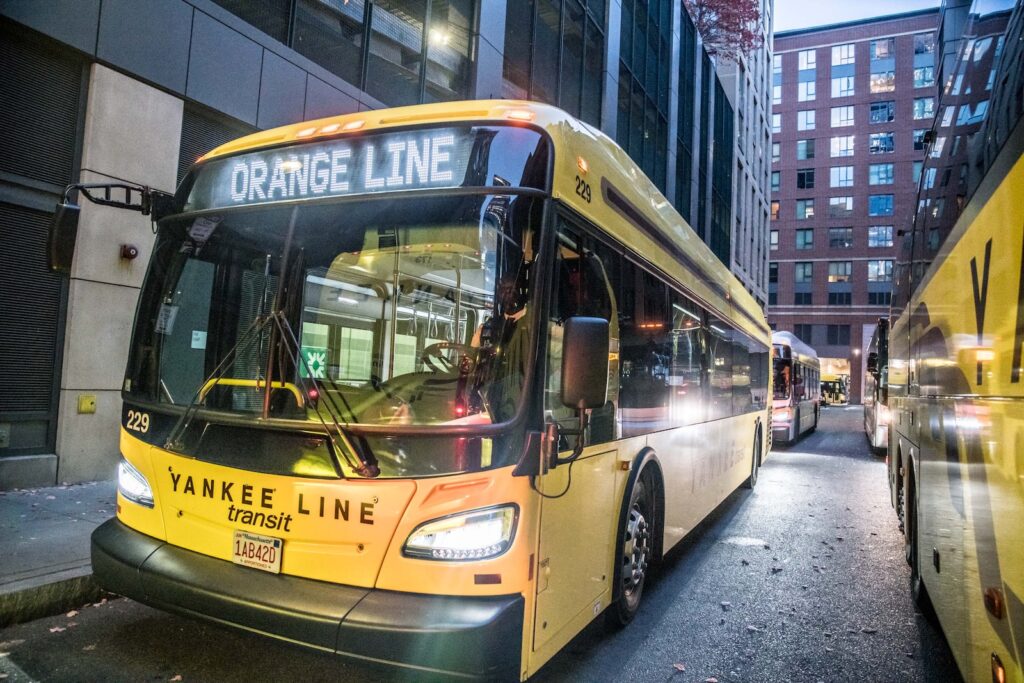

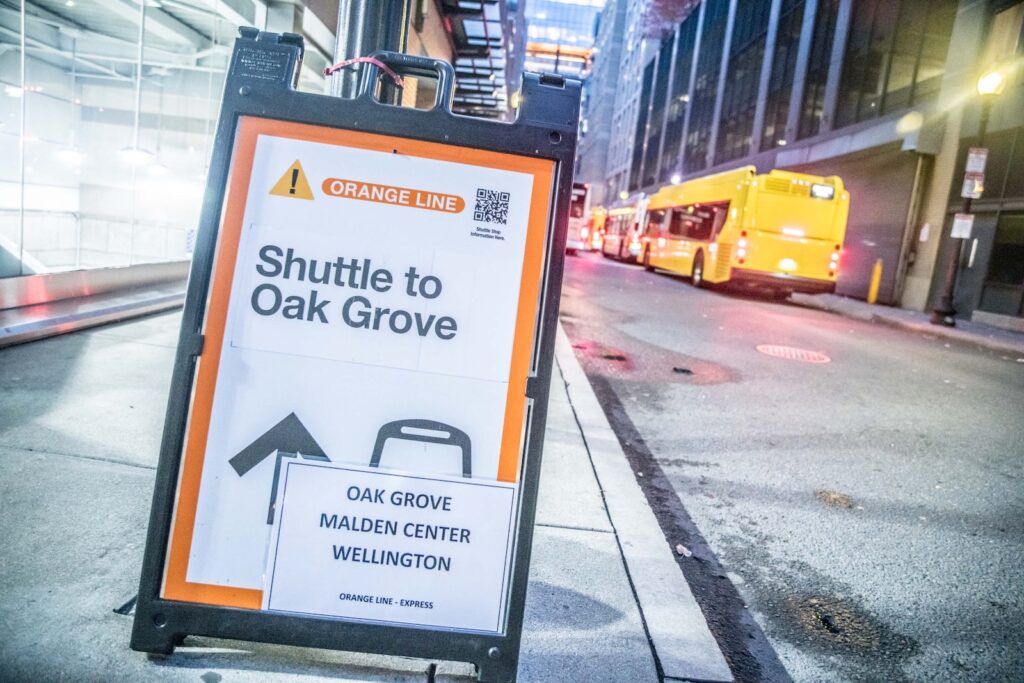
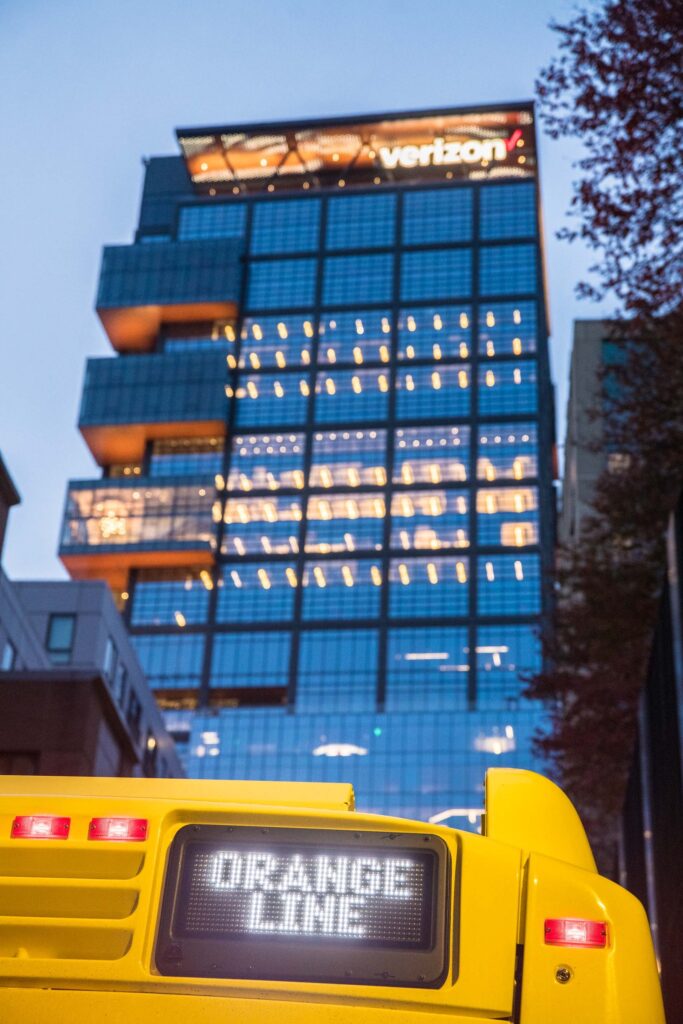

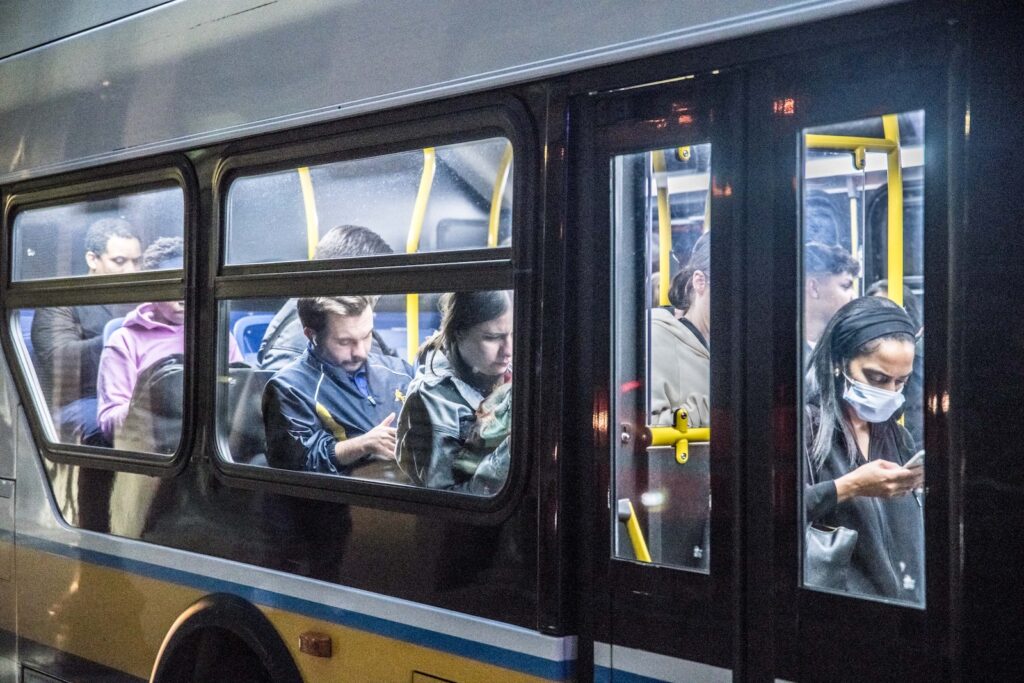
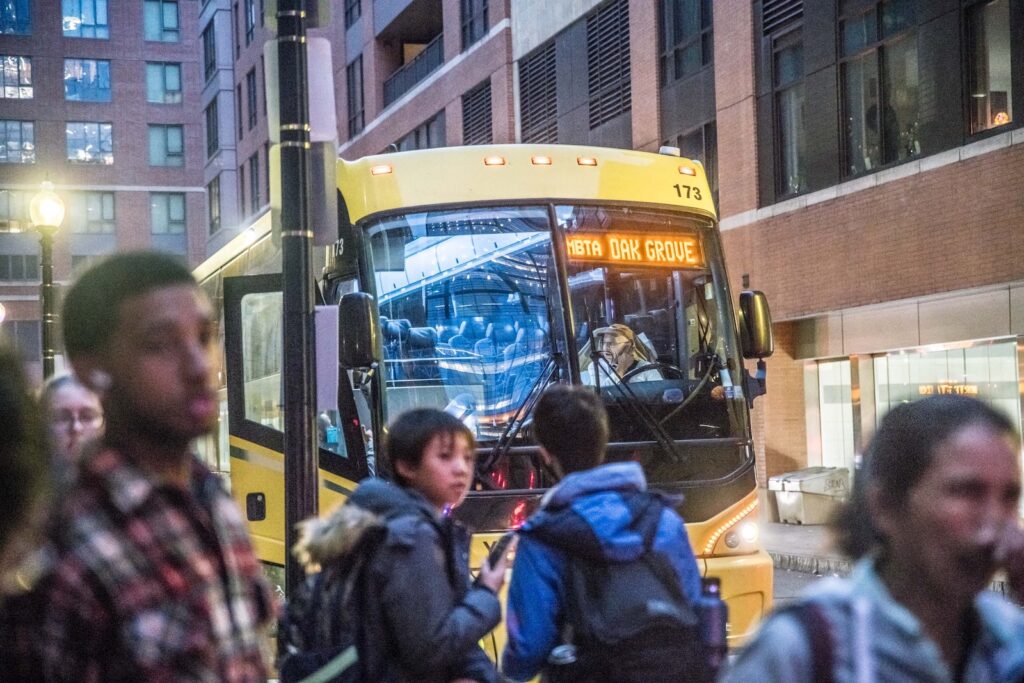

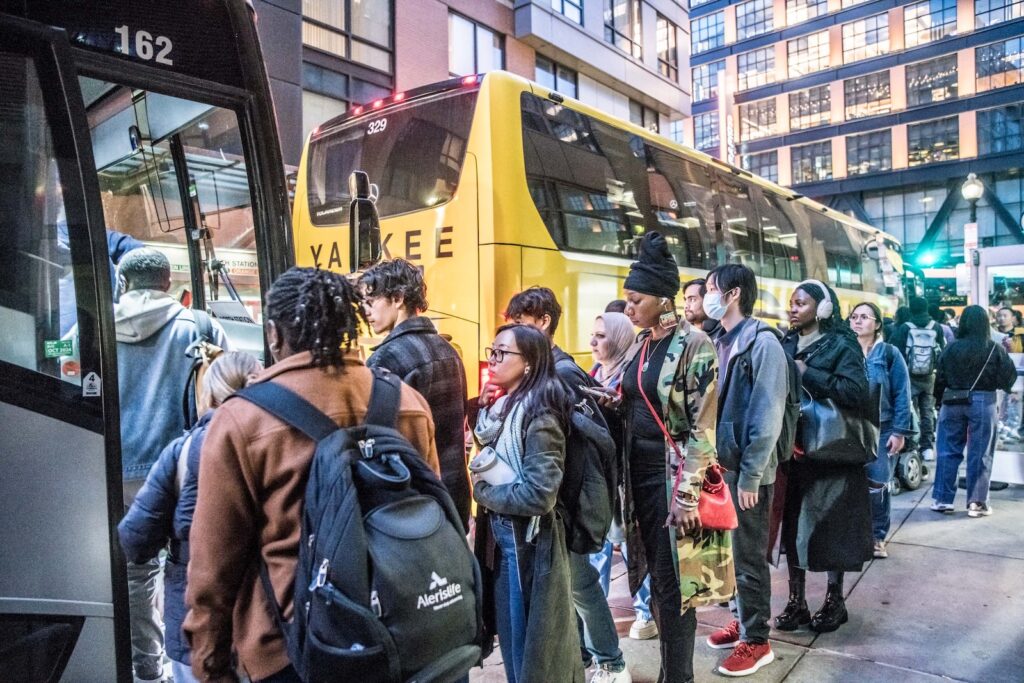
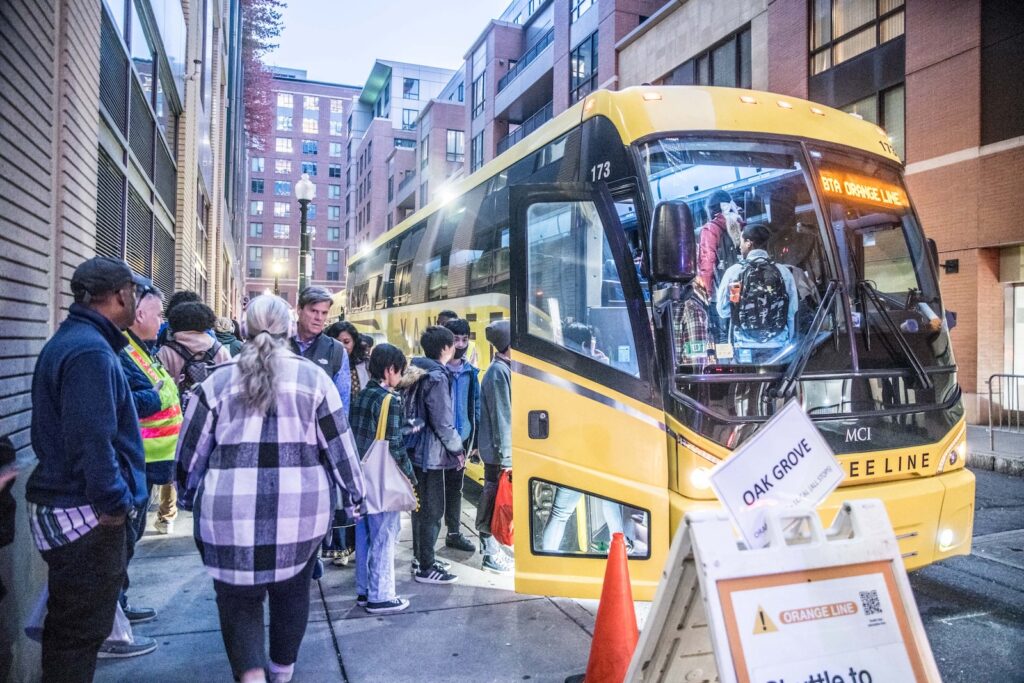

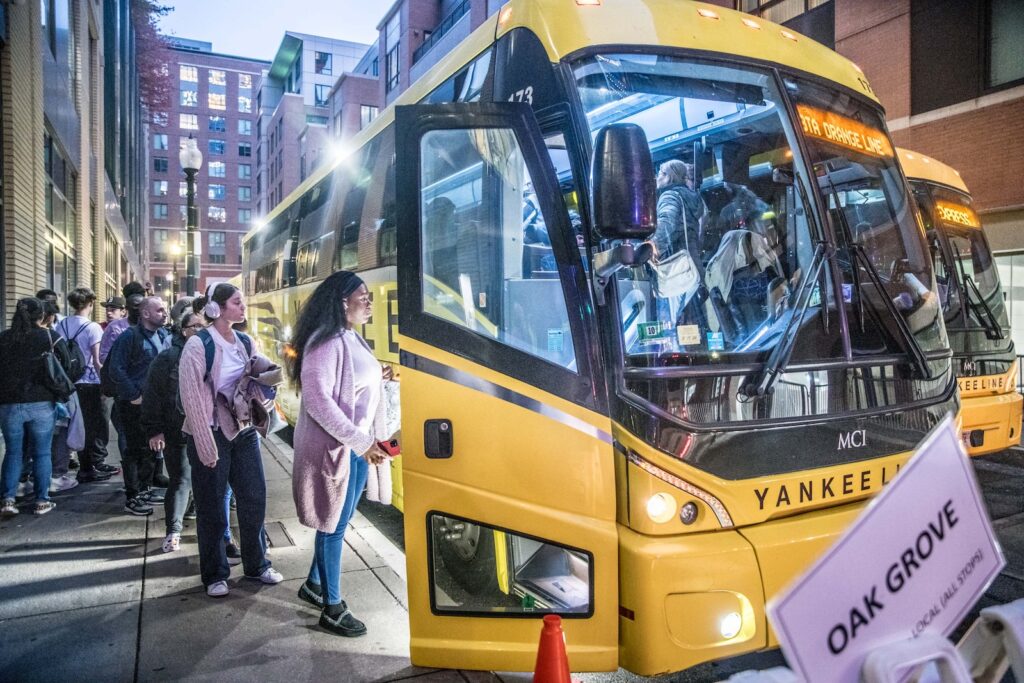
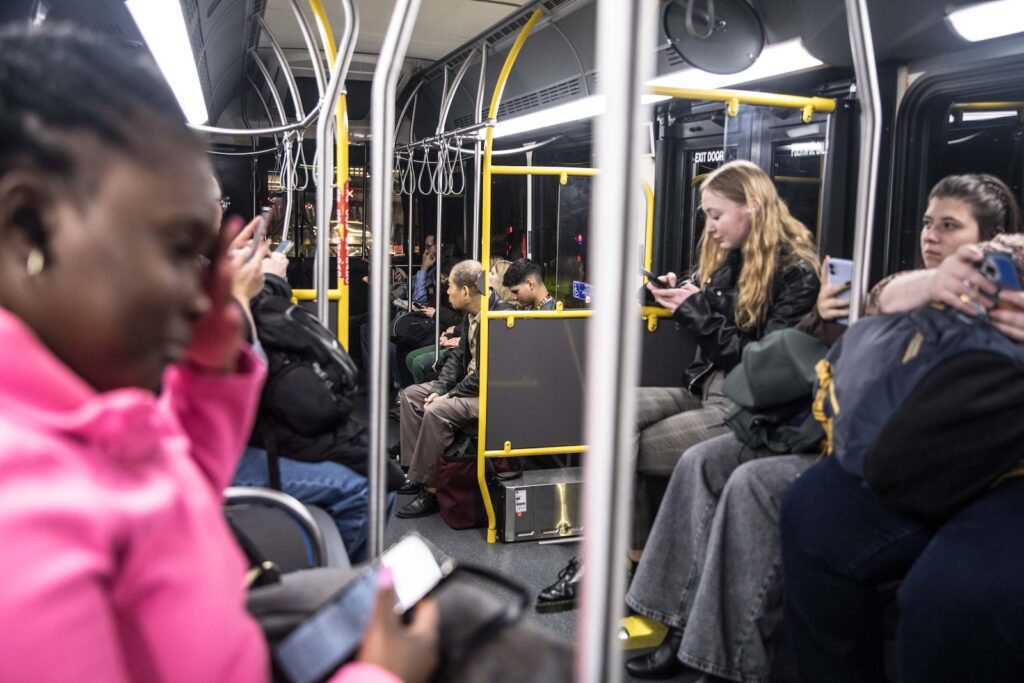
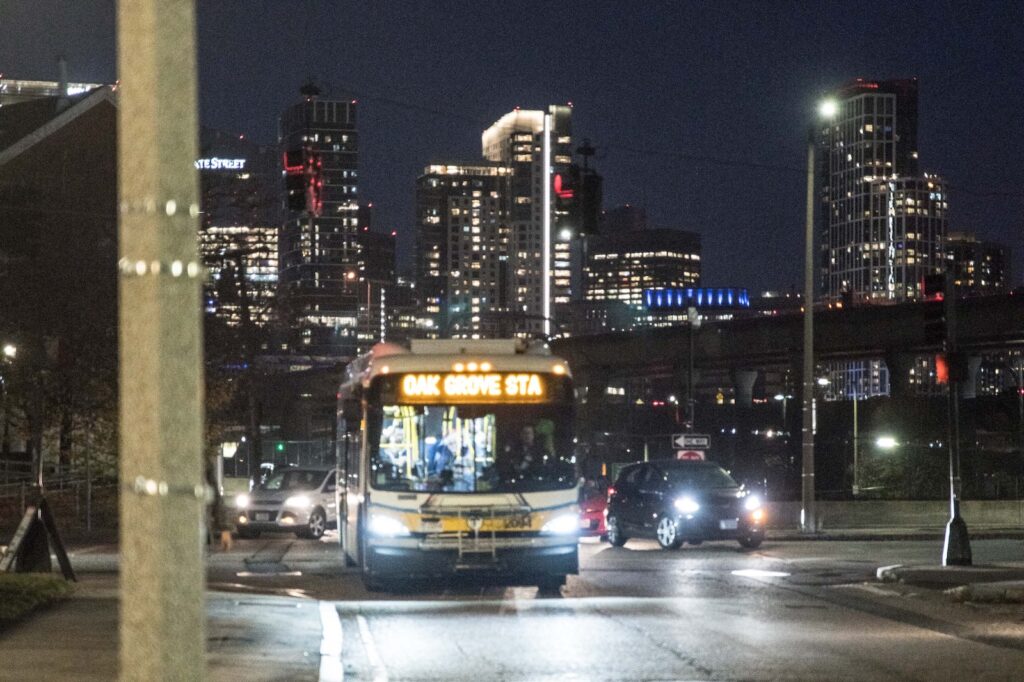
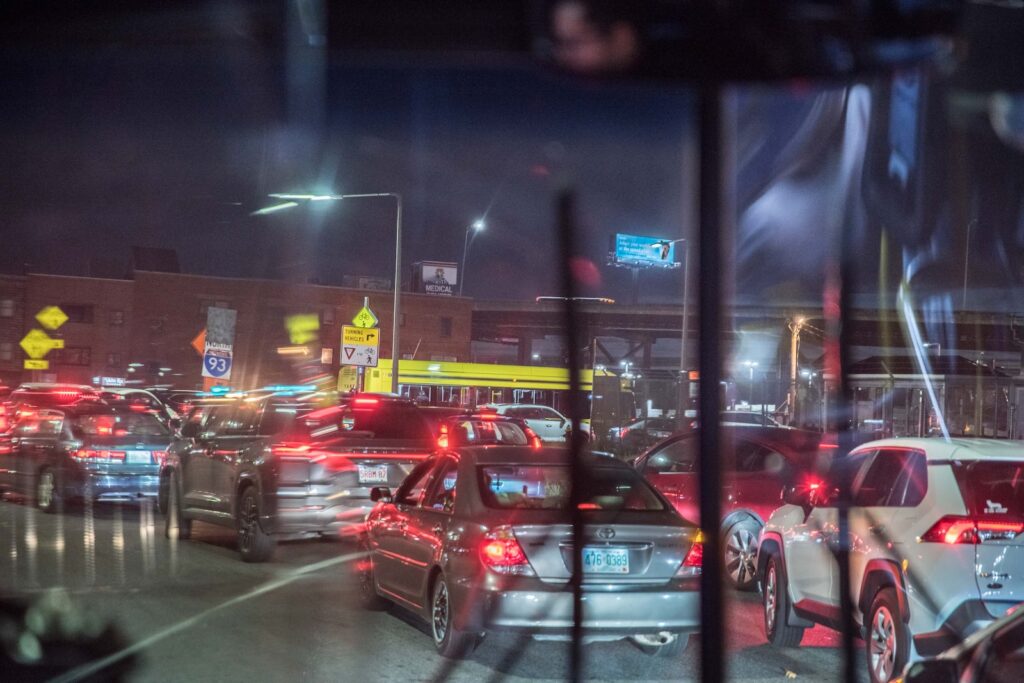

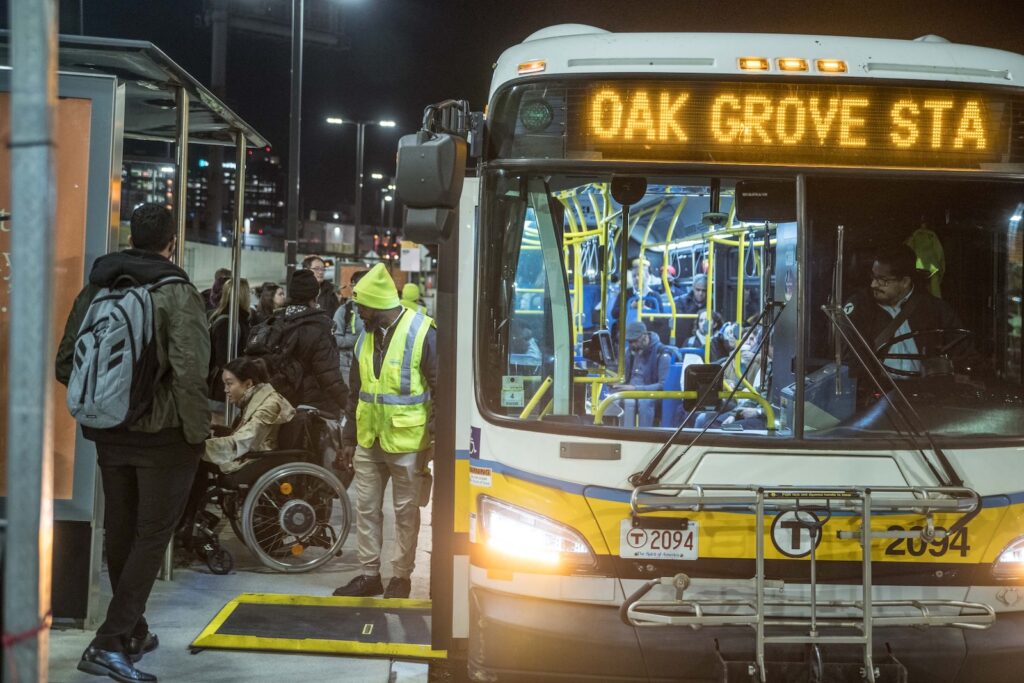
At the same time, our current shuttle situation is still painfully disastrous for Greater Bostonians—even if some of the new buses are made by Mercedes Benz and have plush leather seats. The operation’s also fiscally imprudent. But while we have done reporting that shows just how wasteful shuttle spending is (and even revealed months in advance of other outlets, let alone a T announcement, that lines would be closing), like a lot of reporting by BINJ and other independents about why the system has deteriorated to this point, those revelations were largely forgotten by the time that trains began to roll again.
We remain, however, fully committed to documenting the state of the MBTA and the horrors endured by its riders—all while most other media continue to ignore the struggle. Even on the day we published this feature, nearly every major outlet is reporting the talking point that the Red Line has eliminated “slow zones for the first time in 15 years.” Unlike those mouthpieces for T propaganda, it’s part of our mission to shed light on the literal as well as the political tragedy of transportation in this region.

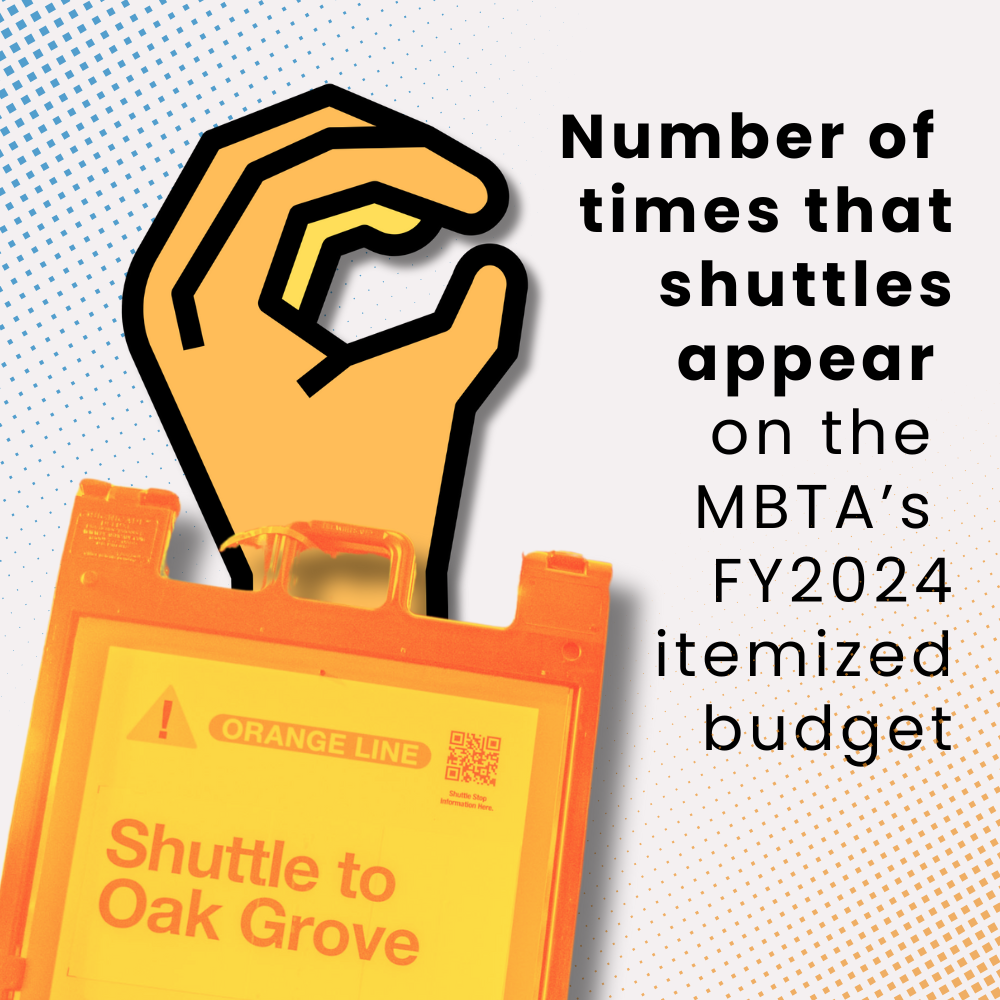


Documenting MBTA decay
To that end, among other projects, seven years ago we tapped longtime Boston photographer Derek Kouyoumjian to capture our decaying public transportation system in a photo feature. Specifically, I asked him to focus on infrastructure so decrepit that he’d never want his loved ones to ride that car or use that train station, and that administrators and elected leaders should be shamed into repairing right away. The resulting photo essay, #CONDEMBTA, seeded a subsequent panel and public discussion. Soon after it was published, two of the stations Derek highlighted had their leaky cracked ceilings repaired. Another focus of that photo essay, the JFK/UMass ruins, made big headlines three years later, after Boston University professor David Jones fell to his death through a corroded staircase there in 2020.
It’s clear that the MBTA is already looking past its problematic shuttle costs, which according to bid documents are expected to run approximately $250 million over five years. That’s a significant jump from the $60 million estimate made in the initial Request For Proposal in 2021, and it’s in addition to the millions of fares that are lost during substitute service. When it started soliciting shuttle proposals, the agency noted, “In the future, MBTA may implement a new fare system, currently referred to as AFC 2.0,” which could help them collect fares during such events. But as we have also reported in a darker light than radio and television news which often just publish MBTA press releases, that fare collection apparatus still isn’t working across the permanent system, let alone on temporary shuttles.
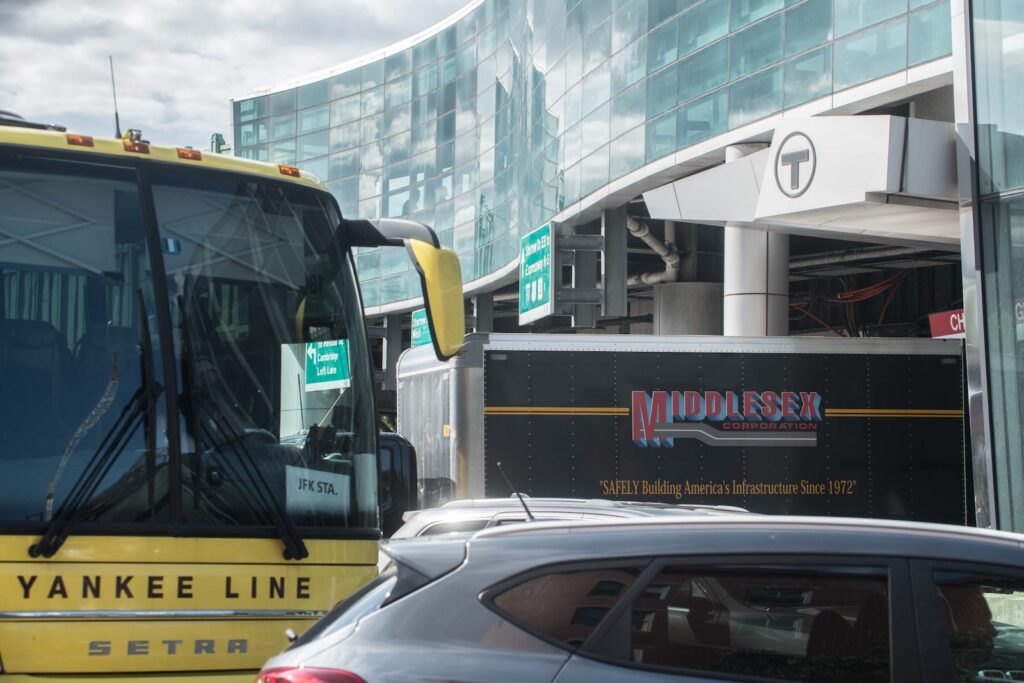
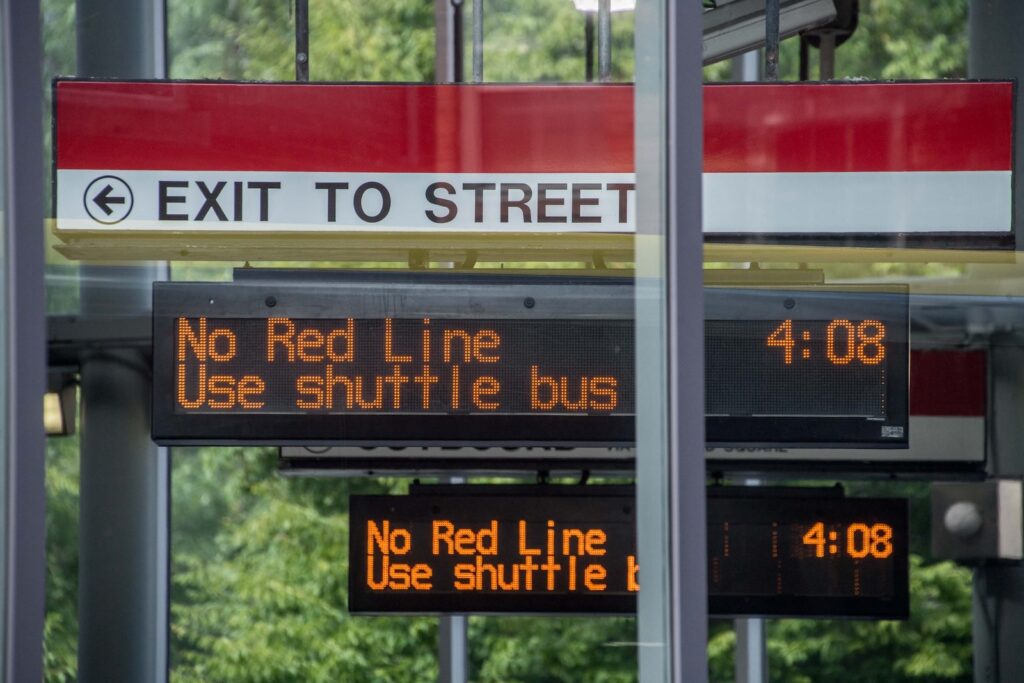

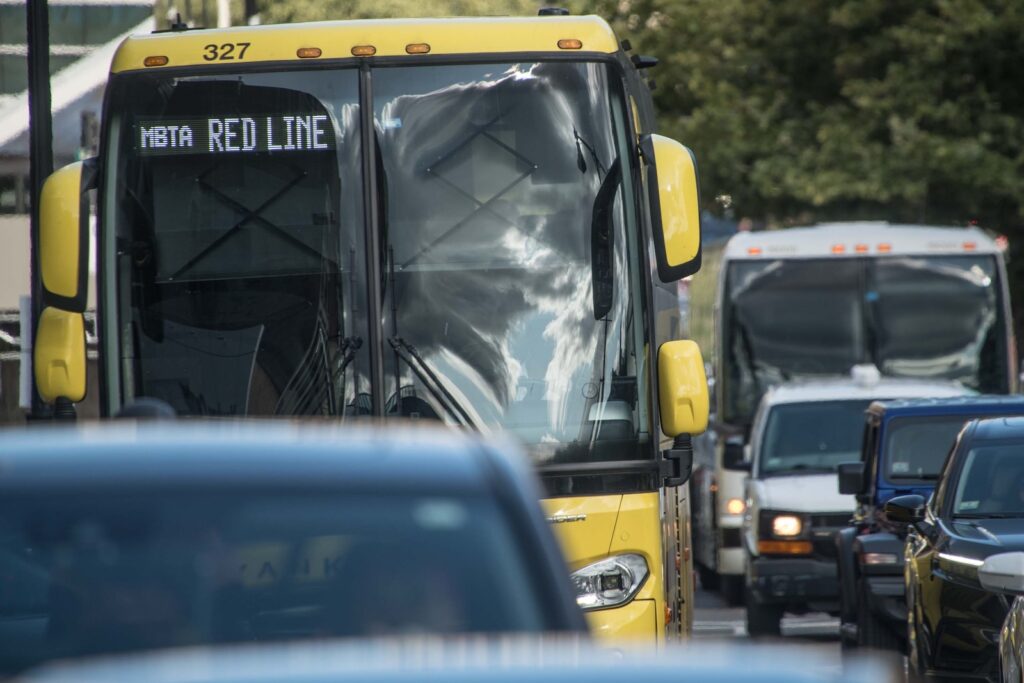



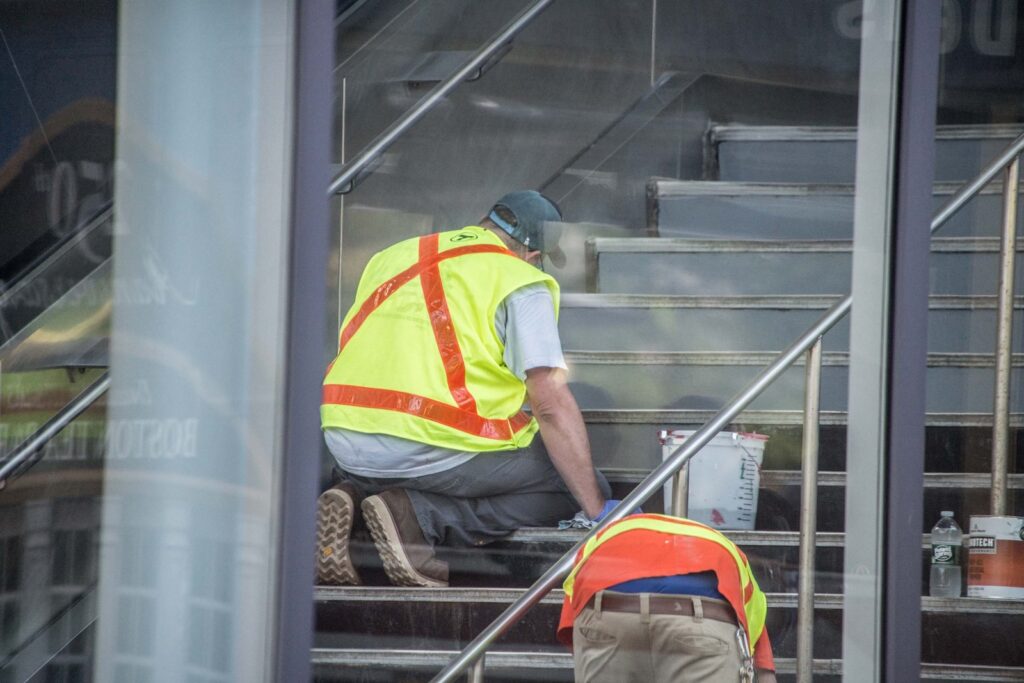
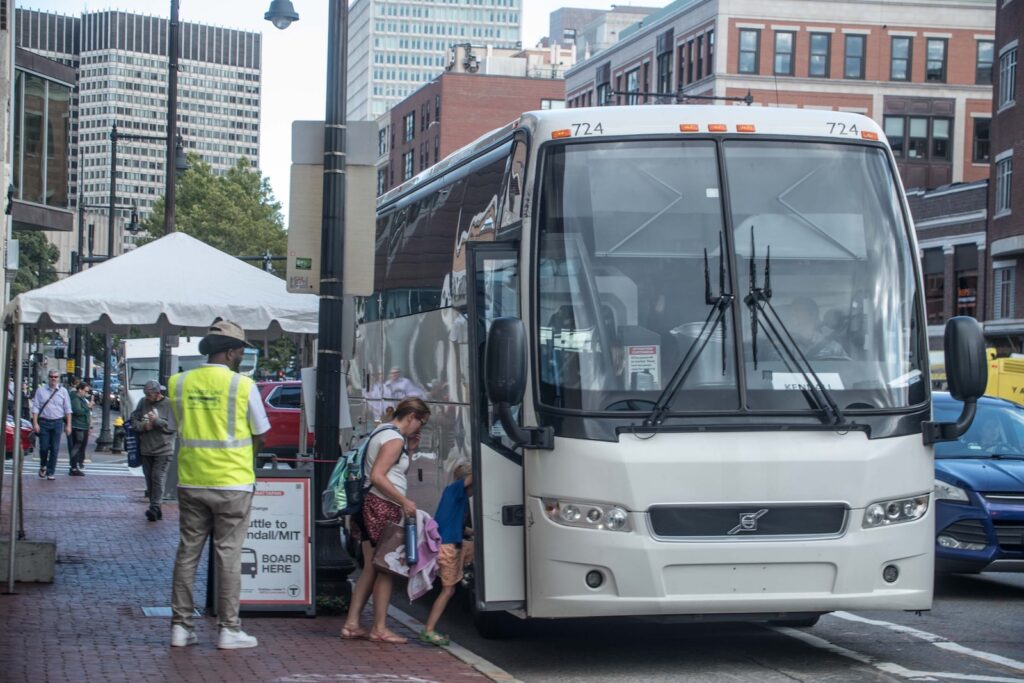
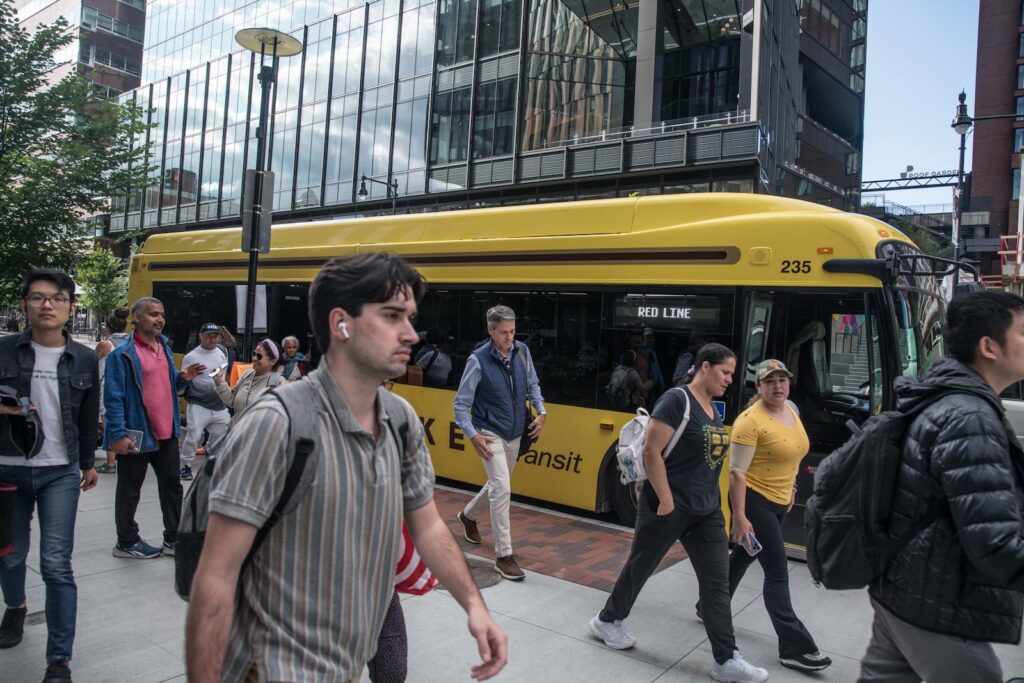
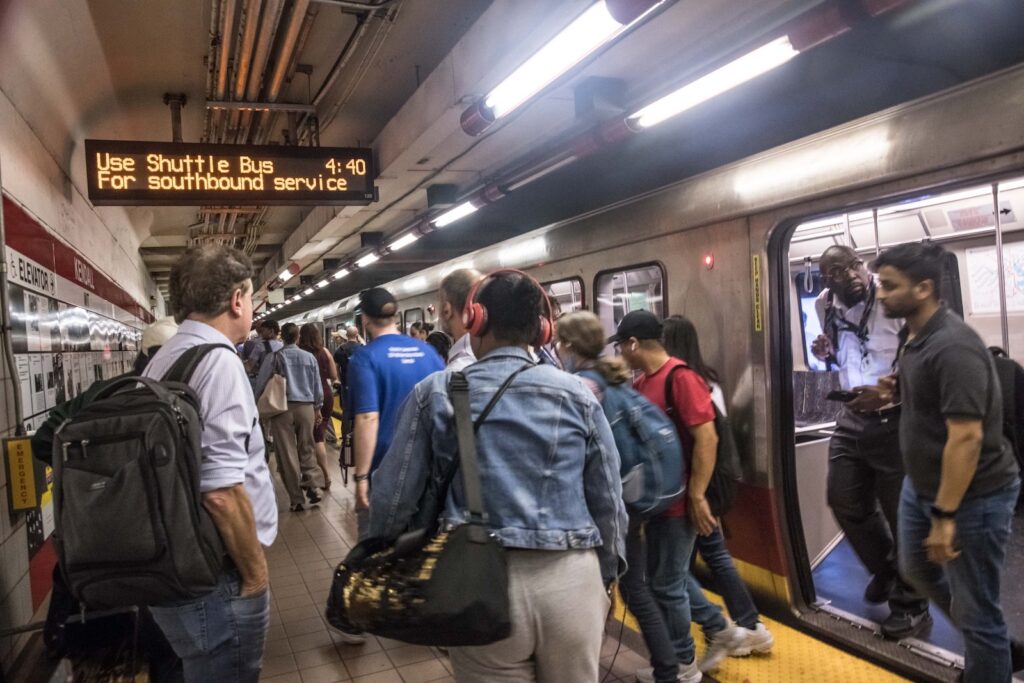
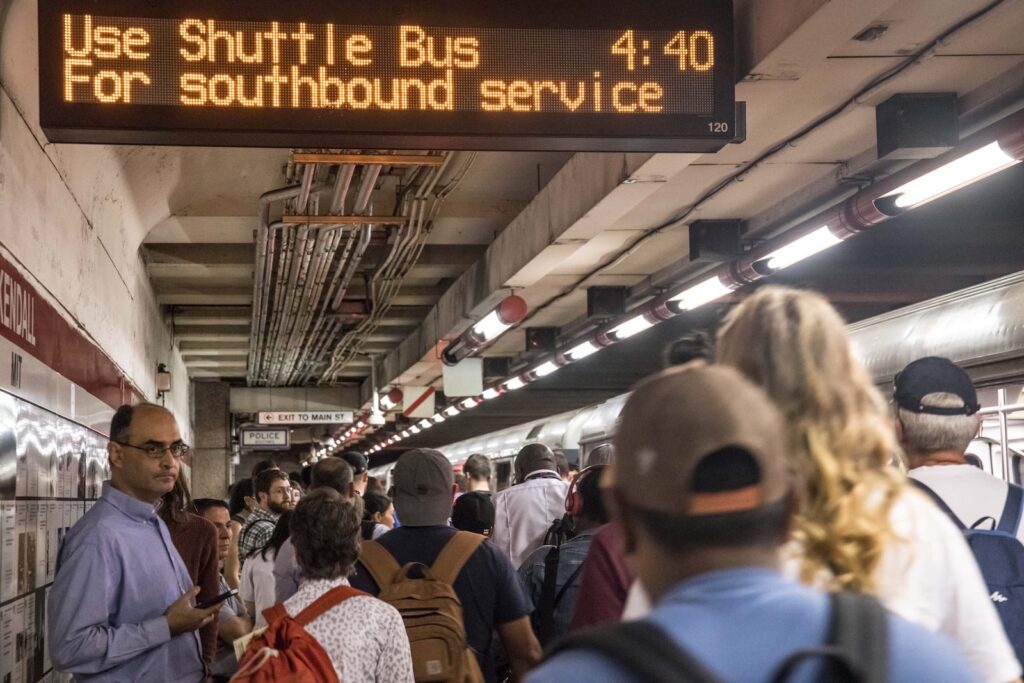
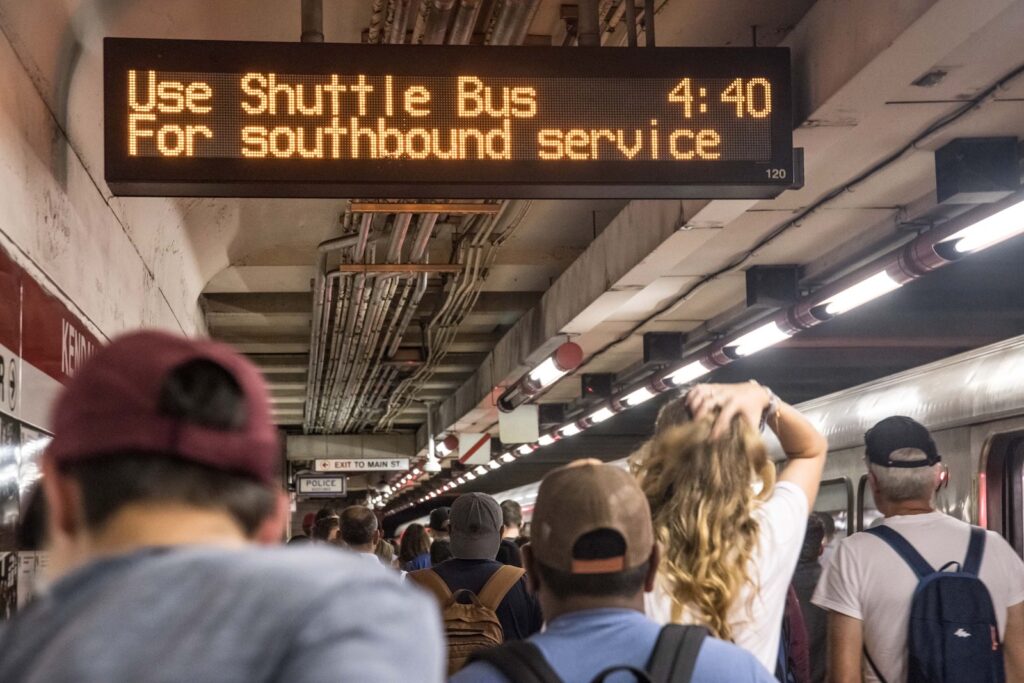
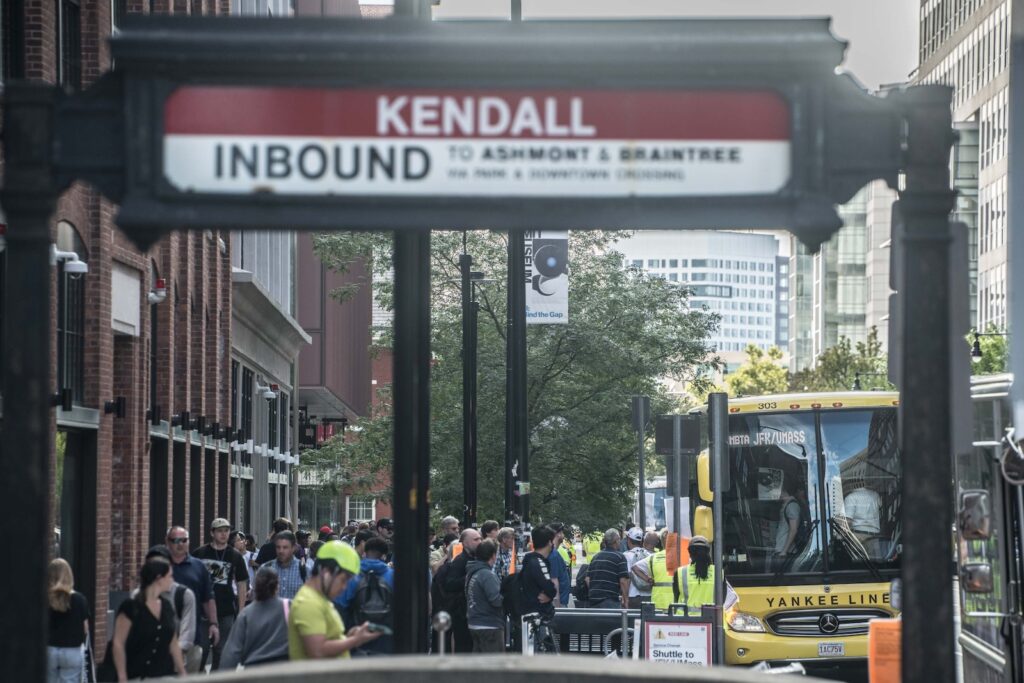
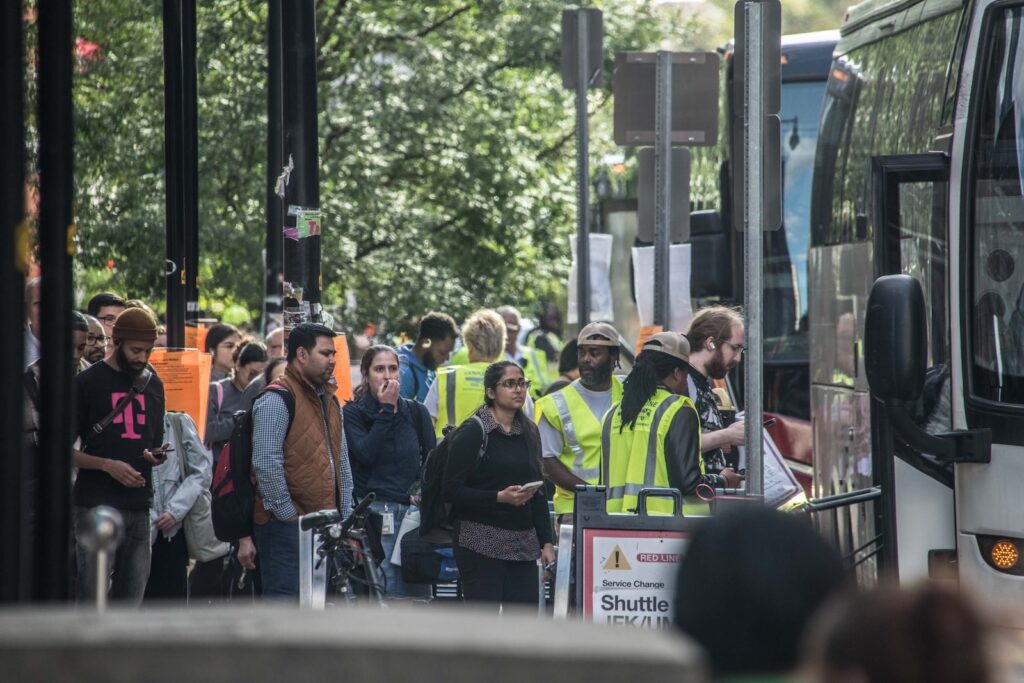
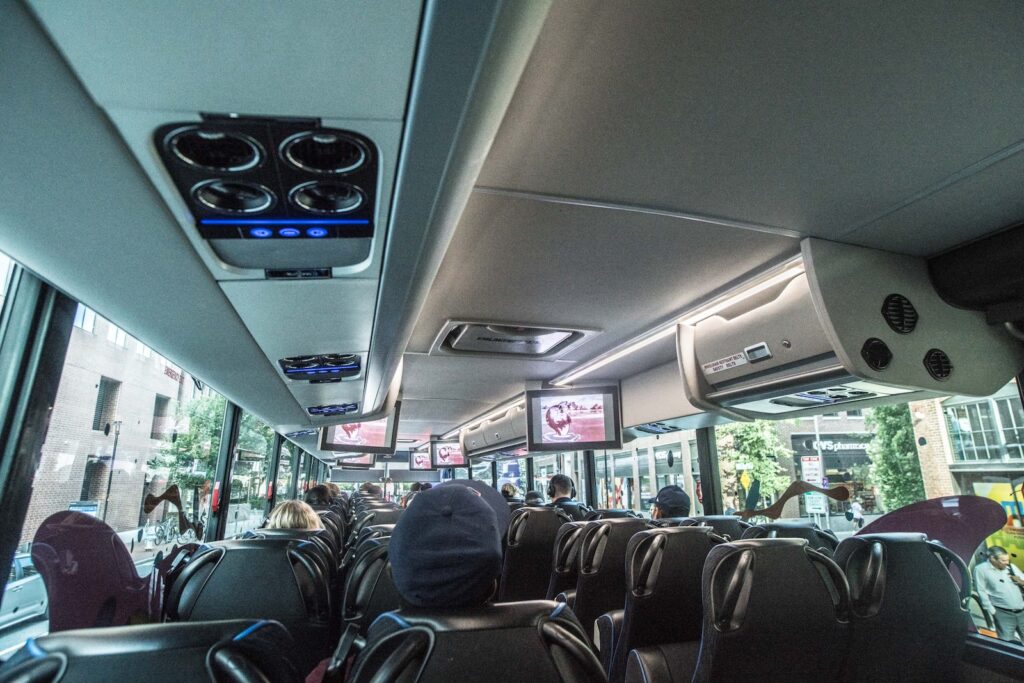


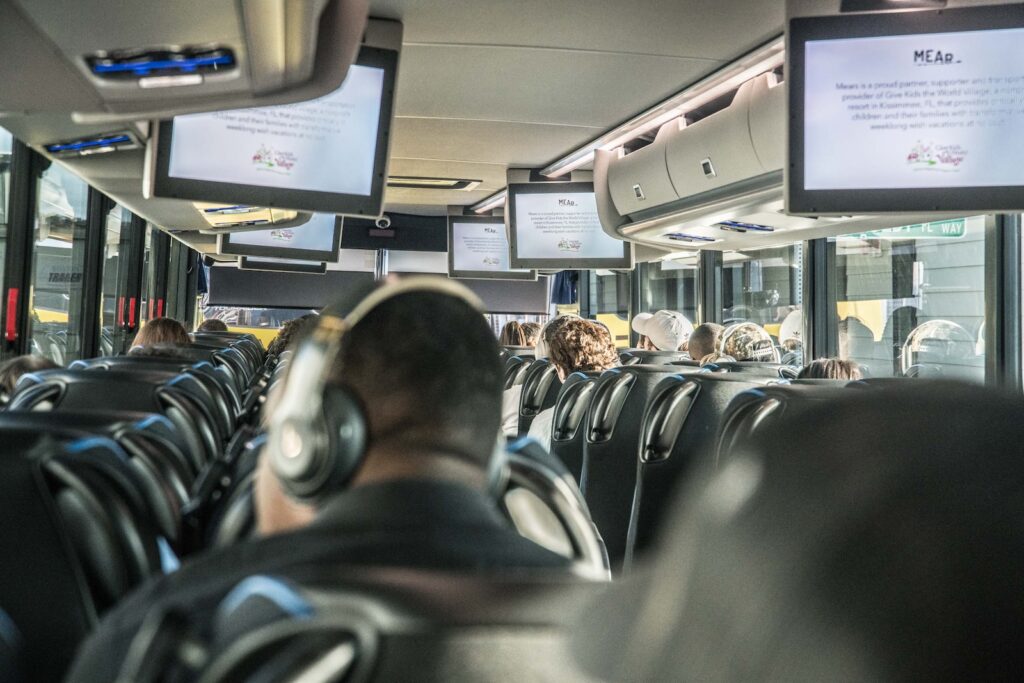
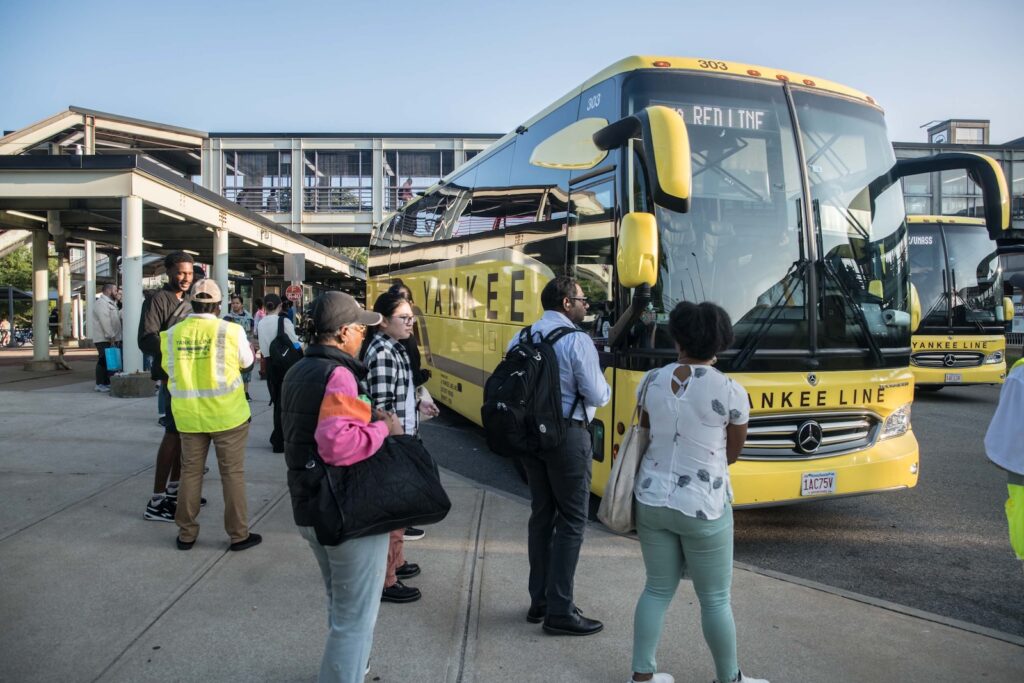
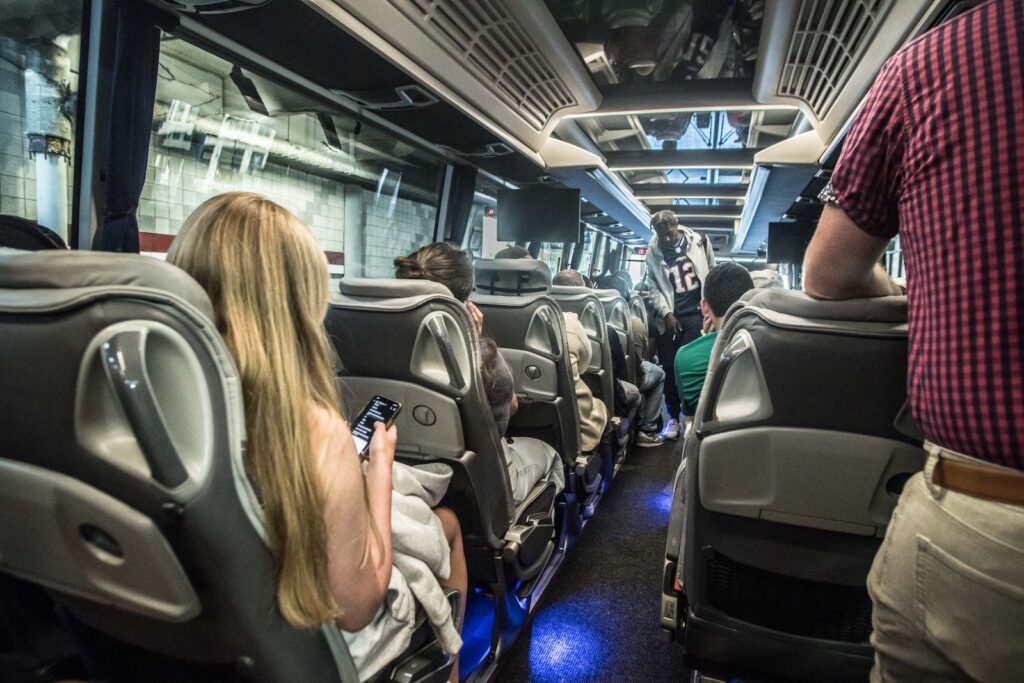
Since we wanted to ensure that everyone from straphangers to politicians who pull strings on Beacon Hill remember what the residents of Greater Boston went through during track work, we sent Derek back out into the T matrix with his camera. This time it wasn’t to record the broken infrastructure as much as it was to illustrate despondent riders who are stuck on the eternal shuttle. Deeply personal and candid for pictures taken in public, his work tells a story that is missed by news cameras that only show up for deaths and derailments—that between calamities, there is still distress.
Despite the rosy picture painted by the MBTA’s publicists, it doesn’t seem like there will be an end to it anytime soon.
This article is syndicated by the MassWire news service of the Boston Institute for Nonprofit Journalism. If you want to see more reporting like this, make a contribution at givetobinj.org.
Frustrated with the MBTA? Check out our Garbage Rail Kids trading cards here.

